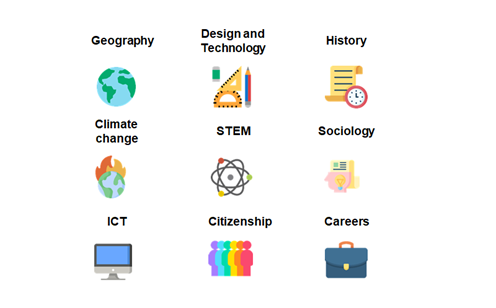Victoria Hills MRTPI FICE is Chief Executive at the RTPI
 The only thing more nerve-wracking then taking an exam is the lengthy wait over the summer holidays for the results. Later this month thousands of students from across the UK will be reflecting on what their results mean for them. Whatever happens you’ve always got options and not getting the grades you hoped for doesn’t mean that you won’t get the future you deserve. The question you should be asking though is what you want that future to look like.
The only thing more nerve-wracking then taking an exam is the lengthy wait over the summer holidays for the results. Later this month thousands of students from across the UK will be reflecting on what their results mean for them. Whatever happens you’ve always got options and not getting the grades you hoped for doesn’t mean that you won’t get the future you deserve. The question you should be asking though is what you want that future to look like.
For many a career in town planning might not be the obvious answer but it should be. Of course, you might expect me to say that, but there are very few professions which have such a profound impact across so many different areas of our daily lives. Our Planning Your World website has some great examples of the impact planning can have on everything from mental health to infrastructure through to economic prosperity.
I’ve also seen some inspiring winners and finalists from this year’s Awards for Planning Excellence. For example, East of England Best Project went to the Lowestoft Eastern Energy Facility (LEEF). The project will support substantial and strategically important investments in offshore windfarm developments off the East Anglian coast and provide critical port infrastructure to enable the UK's clean energy transition and path to net zero.
Given the significant impact planning has, it isn’t surprising that Town Planning is in the top four university subjects for students finding employment within six months of graduation. Town Planning is also a very broad profession - from transport to energy and conservation to economics, planning has a role in pretty much every part of society. And there are lots of different roles available in both public and private sectors as well as charities and within education. You can find more information in our guide to everything you might want to know about planning.
Earlier this year we showcased inspirational planners as part of our ‘Planning Your World’ campaign to show young people the potential of joining an exciting and relevant profession and seeing for themselves just how diverse a career it can be as well as the broad range of roles planners can end up doing.
 If planning sounds like it might be for you the good news is that there are lots of different subjects you can study at school which will help. And there are lots of different jobs planners can do and places you can study as you can see here.
If planning sounds like it might be for you the good news is that there are lots of different subjects you can study at school which will help. And there are lots of different jobs planners can do and places you can study as you can see here.
There are also different routes you can take to enter the profession. You could opt to study directly for an RTPI accredited qualification, and this handy map shows you all the different locations you could go to university. Professional post-graduate degrees are also available and you can convert from most subjects for example architecture, law, music and even zoology! Everyone is welcome, and an inclusive and diverse profession will be essential to deliver the sustainable communities we need now and in the future.
Alternatively, you could try real world training through professional apprenticeships and qualify as a Chartered Town Planner at the end of the programme. Offered by employers directly, you can ‘earn while you learn’ with a job combined with studying at a university or college.
What’s more 1 in 4 Chartered Town Planners earn £55,000 a year or more so there is a real opportunity to progress and increase your pay as you gain experience and qualifications. If you would like to find out more about a career in planning you can take a look at our Planning Your World website which highlights what planners can change, showcases inspiration planners, and shows ‘next steps’ to enter the profession.
So what’s stopping you?! Take a look and don’t miss the opportunity for a successful professional career in town planning. It will put you in the top four university subjects to find employment within six months of graduation and see you actually making a meaningful difference to society, the environment and the economy.


